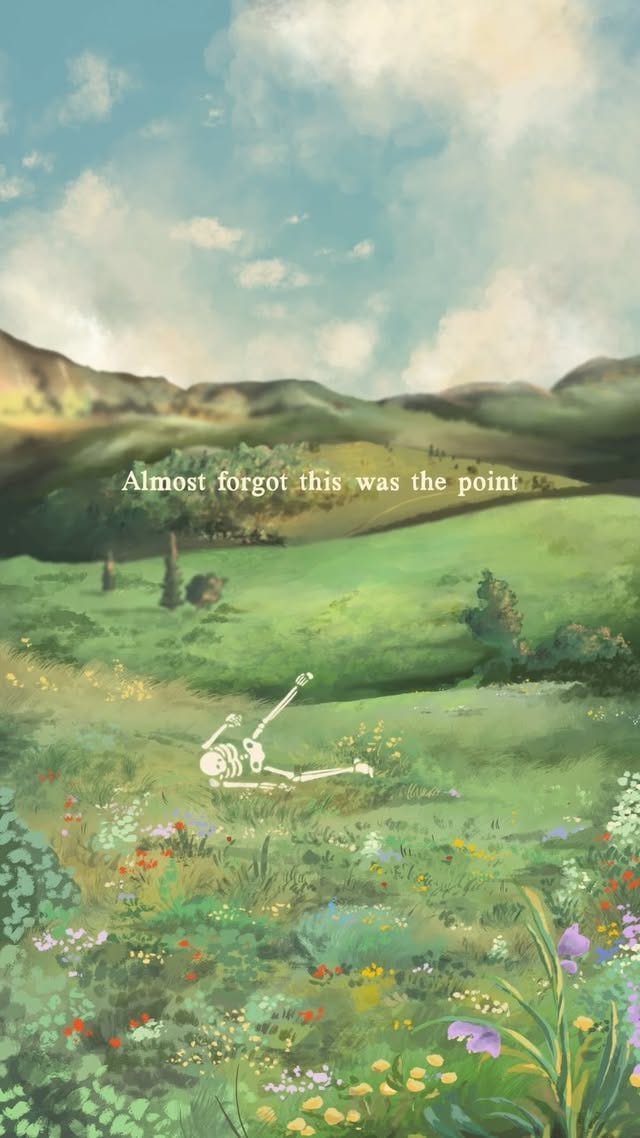4,000 Ideas: Chapters 3 and 4 of Four Thousand Weeks
Too many ideas, perfectionism, and commitment
Welcome back to 4,000 Ideas, the Oliver Burkeman Book Club for Creatives! If you missed any of the earlier posts, you can catch up here. This is a book club where you don’t have to read the book to follow along. You just need a curious spirit and an open mind. The comments are juicy and the people are friendly! I hope you’ll join us!
Whether you’re a writer, a dancer, a potter, or a painter, I’m guessing you struggle with…
Having too many ideas
Finding time to work on your ideas
Fantasizing about being creative instead of actually doing it
Expecting perfection
And in the background of all this is…
“…the core challenge of managing our limited time isn’t about how to get everything done—that’s never going to happen—but how to decide most wisely what not to do, and how to feel at peace about not doing it.”
This quote is one of the reasons I think Burkeman’s work is so relevant to creatives!
The Oliver Burkeman vibes are strong over at 1924us’s Mr Skelly series on Instagram. Click for the full animation!
Today we’re looking at Chapters 3 and 4 of Four Thousand Weeks. In keeping with the rest of the book, much of Chapter 3 is spent discussing the finite nature of our existence. Burkeman is the first to say he doesn’t “in a permanent state of unflinching acceptance of my mortality,” and he isn’t trying to say that acknowledging the finite nature of being human will make you happier. But it will give you a “more honest relationship with time,” which might be a good place to start if have…
Too many ideas!
We all have an abundance of projects, genres, formats, and interests that we want to explore. But Burkeman says, “by the end of your life, you’ll have gotten around to doing virtually none of the things you theoretically could have done.” What follows from developing an honest relationship with time is that choosing a project to focus on means deciding which of the the infinite possibilities you won’t pursue. You may resist choosing a project to focus on, but choosing is exactly how you make the time you spend on that project inherently valuable—even if you don’t know where it will lead. Because as the political theorist Robert Goodin says, “You can’t become an ultra successful lawyer or artist or politician with out first ‘settling’ on law, or art, or politics, and therefore deciding to forgot the potential rewards of other careers.” I’m not sure this the only way to be happy with your work, but in short both Burkeman and Godin are saying…
The commitment to your project matters as much or more than what you choose to focus on.
In Chapter 4, Burkeman references the classic productivity idea of putting big and small rocks into a jar. Theoretically if you put all the small rocks, which symbolize unimportant tasks, into the jar first, you won’t have room left for the big (important) rocks. But as Burkeman says the problem “isn’t that we’re bad at prioritizing big rocks. It’s that there are too many rocks—and most of them are never making it anywhere near that jar.” If your life looks anything like mine does, this rings true!
So how do we choose which rocks to put in the jar and which projects to focus on?
Burkeman recommends taking a few different approaches
Working on your most important project TODAY, even if just for a few minutes, no matter what else is begging for your attention (The point is to stop waiting for the perfect time.)
Choosing what you will neglect or let go of
Limiting your focus to one or two projects
Resisting the allure of middling priorities
If you’re already a paid subscriber—thank you! Keep reading. I can’t wait to chat with you in the comments! If you’re hitting a paywall, you can upgrade to paid so you can continue reading this post, access the journal prompts, and join the discussion on setting priorities and avoiding the trap of perfectionism below.
Keep reading with a 7-day free trial
Subscribe to Nebula Notebook to keep reading this post and get 7 days of free access to the full post archives.





